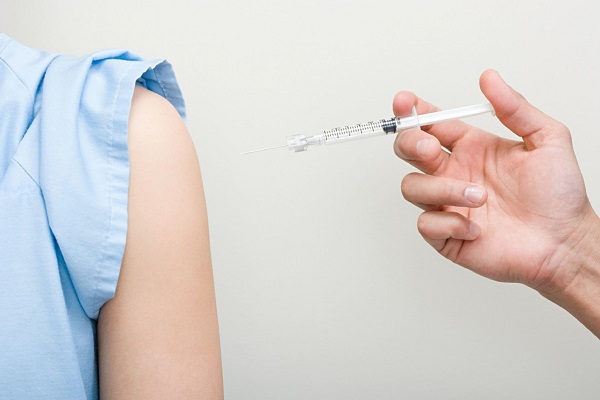Fact-check on vaccine-related misinformation

[Photo/IC]
Vaccine is a powerful weapon in the fight against COVID-19. As the second COVID booster becomes available for eligible people and the health authorities work to boost senior vaccination rates, misinformation about COVID-19 vaccines is also rising. In this article, we refute some of the most inaccurate claims.
1. The symptoms of COVID-19 infection are 10 times as severe after getting a COVID-19 vaccine shot.
Fact: The side effects from COVID-19 vaccination and symptoms of COVID-19 infection are not comparable. The COVID-19 vaccines work by imitating an infection and can cause mild side effects, such as a fever or pain at the injection site. But this type of infection doesn't cause illness. Side effects after getting a vaccine are also related to other ingredients of the vaccine. In natural infection with COVID-19, the live viruses first hit the respiratory tract and can enter the trachea, bronchi and even the lung tissue as the infection progresses. They can also reach other parts of the body with the flow of blood and cause various symptoms.
2. Developing lung nodules is linked to COVID-19 vaccination.
Fact: There is no present evidence that inoculation of vaccines, including but not limited to COVID-19 vaccines, is related to the development of lung nodules. Improvement in the accuracy of lung CT scanning and significant increase in the number of screenings during the COVID-19 pandemic are important reasons for the high incidence of lung nodules.
3. The mRNA vaccines for COVID-19 can cause antibody-dependent enhancement.
Fact: ADE, in which your immune system can make antibodies that worsen an infection instead of neutralizing it, is a risk for developing all vaccines, including the mRNA vaccines. Vaccines that have undergone rigorous clinical trials and been granted market approval rarely have ADE issues. No case of COVID-19 vaccines causing ADE has been found. In fact, COVID-19 vaccines have proved very effective in reducing rates of severe case and death.
4. COVID-19 vaccines damage the body's immune functions.
Fact: Vaccination can help the body develop immunity to specific pathogens and improve the body's immune functions. Getting vaccinated is a simple, safe, and effective way of protecting yourself against COVID-19, before you come into contact with it.
5. Mass inoculation of COVID-19 vaccines can accelerate virus mutation and negates the effect of the vaccine.
Fact: Novel coronavirus variants appeared before the launch of mass inoculation of COVID-19 vaccines. Besides generating antibodies, the vaccines also activate T-lymphocytes, which will remember how to fight the virus. When the vaccine-induced antibodies become less effective in neutralizing the variants, strong immune response from T-lymphocytes can still protect the vaccinated people.
6. There's no need to get vaccinated as oral antiviral drugs for COVID-19 are available.
Fact: Oral antiviral drugs and vaccines for COVID-19 complement each other in containing, preventing and treating COVID-19. Vaccines play an irreplaceable role in preventing infection and reducing severe cases and mortality rate. Increasing the rate of vaccination can help reduce the number of people in need of oral antiviral drugs. The drugs, on the other hand, can protect those who cannot get vaccinated or have poor response to vaccination.
7. One may be poisoned after getting an inactivated COVID-19 vaccine, which contains methanal, a toxic carcinogen.
Fact: Such COVID-19 vaccines approved for use in China are inactivated by beta-propiolactone, not methanal. Beta-propiolactone, though also highly carcinogenic, can easily hydrolyze into non-toxic, non- carcinogenic substances in two hours. It's safe for human body.
